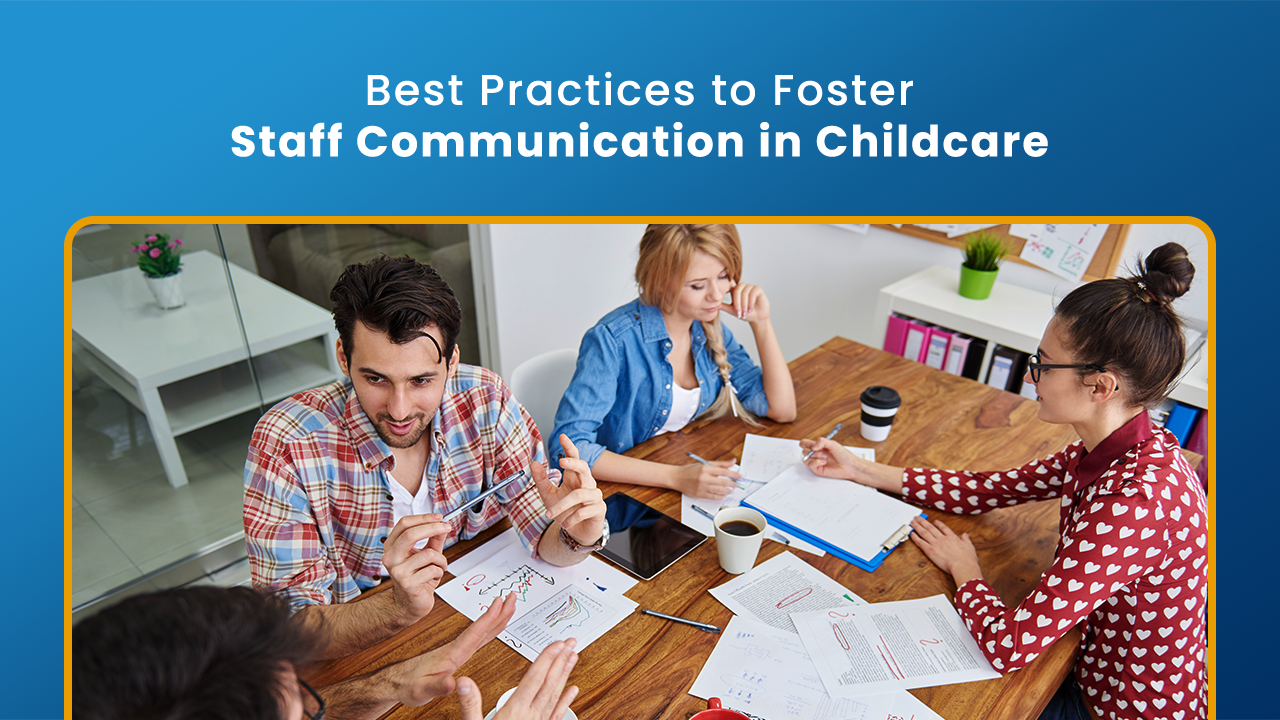
- Understanding the Basics of Human Relations in Daycare Centers
- 1. Emotional Well-being and Support:
- 2. Team Consistency:
- 3. Effective Communication:
- 4. Modeling Positive Behavior:
- 5. Professional Growth and Collaboration:
- 6. Retention and Job Satisfaction:
- Strategies to Foster Building Strong Relationships with Staff in Daycare Centers
- The Role of 360Daycare Software in Building Strong Relationships with Staff in Daycare Centers
In the bustling world of daycare centers, the importance of building strong relationships with staff cannot be understated. Here, relationships aren’t just between caregivers and children but also, critically, between staff members themselves. A daycare center thrives on the harmonious interactions of its team, mirroring the nurturing and supportive environment we aim to create for the children. This is a unique workplace where emotions run high, patience is constantly tested, and the stakes—the well-being and development of young minds—are significant.
As such, fostering positive relationships among staff becomes paramount, not only for operational efficiency but also as a model for the children we care for. In this post, we’ll delve into the importance of these relationships and provide actionable strategies to build and maintain them in daycare settings.
Understanding the Basics of Human Relations in Daycare Centers
Building and nurturing relationships is a fundamental human need, underpinning the core of our social fabric. This principle holds even greater weight in daycare centers due to the intimate, emotionally charged environment these institutions often operate within.
1. Emotional Well-being and Support:
In daycare centers, the day-to-day can be both rewarding and draining. Staff deal with various challenges, from managing children’s unique needs to navigating parental concerns. Strong relationships among staff provide an essential support network, allowing individuals to share frustrations, seek advice, or simply find a listening ear after a challenging day. This emotional well-being directly translates to better care for the children.
2. Team Consistency:
Children, especially young ones, thrive on consistency. When staff members have strong relationships and understand each other’s methods and mindsets, it creates a unified approach to caregiving. This seamless interaction ensures that children experience stable, predictable care, which is crucial for their sense of security and development. Read more about best practices for building strong teams in childcare centers
3. Effective Communication:
Daycare centers are hubs of constant activity, making clear communication essential. Strong relationships among staff pave the way for open dialogues, ensuring that vital information regarding a child’s needs, behaviors, or incidents are efficiently passed on and addressed.
4. Modeling Positive Behavior:
Children are incredibly perceptive and often pick up on adult interactions. By fostering positive relationships among staff, daycare centers can offer children firsthand lessons on teamwork, respect, kindness, and effective communication. Essentially, staff interactions serve as daily demonstrations of how to relate to others in a positive, constructive manner.
5. Professional Growth and Collaboration:
When staff members share strong bonds, they’re more likely to collaborate, share resources, and engage in constructive feedback. This collective approach leads to continuous professional development, enhancing the quality of care provided to the children.
6. Retention and Job Satisfaction:
High turnover can be disruptive to a daycare center’s operations and unsettling for children. Interpersonal solid relationships contribute significantly to job satisfaction, making staff more likely to remain in their roles long-term, ensuring continuity and stability.
Strategies to Foster Building Strong Relationships with Staff in Daycare Centers
Building strong relationships among staff in daycare centers is pivotal to ensuring children’s well-being and the establishment’s overall success. Here are several strategies to cultivate and strengthen these bonds
Regular Team-Building Activities:
Organize activities that allow staff to connect on a personal level, outside the daily rigors of childcare. This could range from monthly team lunches, workshops, or even simple ice-breaker activities at the beginning of staff
meetings.
Open Communication Channels:
Create an environment where staff feel comfortable sharing their thoughts, concerns, and ideas. Whether it’s a suggestion box, regular team meetings, or an open-door policy, it’s essential that every member feels heard.
Professional Development Opportunities:
Invest in training sessions, workshops, and courses specific to early childhood education. When staff learn and grow together, it fosters a sense of camaraderie and shared purpose.
Rotate Tasks and Responsibilities:
Switching roles occasionally or working in different classrooms can help staff appreciate each other’s roles and challenges. This shared understanding can boost empathy and collaboration.
- Celebrate Achievements and Milestones:
Recognize birthdays, work anniversaries, and personal achievements. This creates a culture of appreciation and acknowledgment, making staff feel valued.
Conflict Resolution Training:
Given the emotional and sometimes high-stress nature of daycare work, conflicts may arise. Providing staff with tools and strategies to address and resolve conflicts amicably is essential.
Shared Vision and Goals:
Ensure that every team member understands and aligns with the center’s mission and values. Regularly revisiting these goals can unite the team and give them a shared sense of purpose.
Encourage Peer Mentorship:
Pairing seasoned staff with newer members can create a supportive environment. This mentorship can facilitate knowledge transfer, professional growth, and stronger interpersonal bonds.
Flexible Scheduling:
Recognizing that staff have lives and responsibilities outside of the daycare center, being flexible with scheduling when possible can help reduce stress and foster goodwill.
Feedback and Reflection Sessions:
Organize sessions where staff can periodically provide feedback on processes, relationships, and the work environment. It’s not just about airing grievances, but also about collectively brainstorming solutions and improvements.
By prioritizing these strategies, daycare centers foster strong relationships with staff and can ensure a cohesive, harmonious, and efficient work environment. As staff relationships strengthen, they invariably reflect in the quality of care provided to the children, making the center a beacon of warmth, understanding, and collaboration.
The Role of 360Daycare Software in Building Strong Relationships with Staff in Daycare Centers
In today’s digital age, innovative tools like the 360Daycare software are becoming game-changers for daycare centers, especially when it comes to building strong relationships with staff. Here’s how the software plays a pivotal role:
- Unified Communication Platform:
360Daycare provides a central platform for staff communication, ensuring everyone is on the same page. This seamless communication reduces misunderstandings and fosters an environment of clarity and transparency.
- Task and Role Management:
With features that allow managers to allocate tasks and responsibilities, staff can easily understand their daily roles, leading to reduced friction and clearer role definitions.
- Professional Development Tracking:
The software can track training sessions, workshops, and courses attended by staff members. This ensures that everyone gets equal opportunities to grow, strengthening the bond among team members.
- Centralized Resource Hub:
Sharing resources, lesson plans, and best practices becomes easier with a centralized system. This sharing culture can foster a collaborative environment and reduce the reinvention of the wheel.
- Performance Analytics:
By offering insights into performance metrics, staff can understand their strengths and areas for improvement. This transparency can lead to mutual respect and a more supportive environment.
Incorporating tools like 360Daycare software simplifies administrative tasks, yes, but its true value lies in its ability to enhance interpersonal relationships and collaborations. Streamlining processes and promoting open communication, set the foundation for a harmonious work environment in daycare centers.


